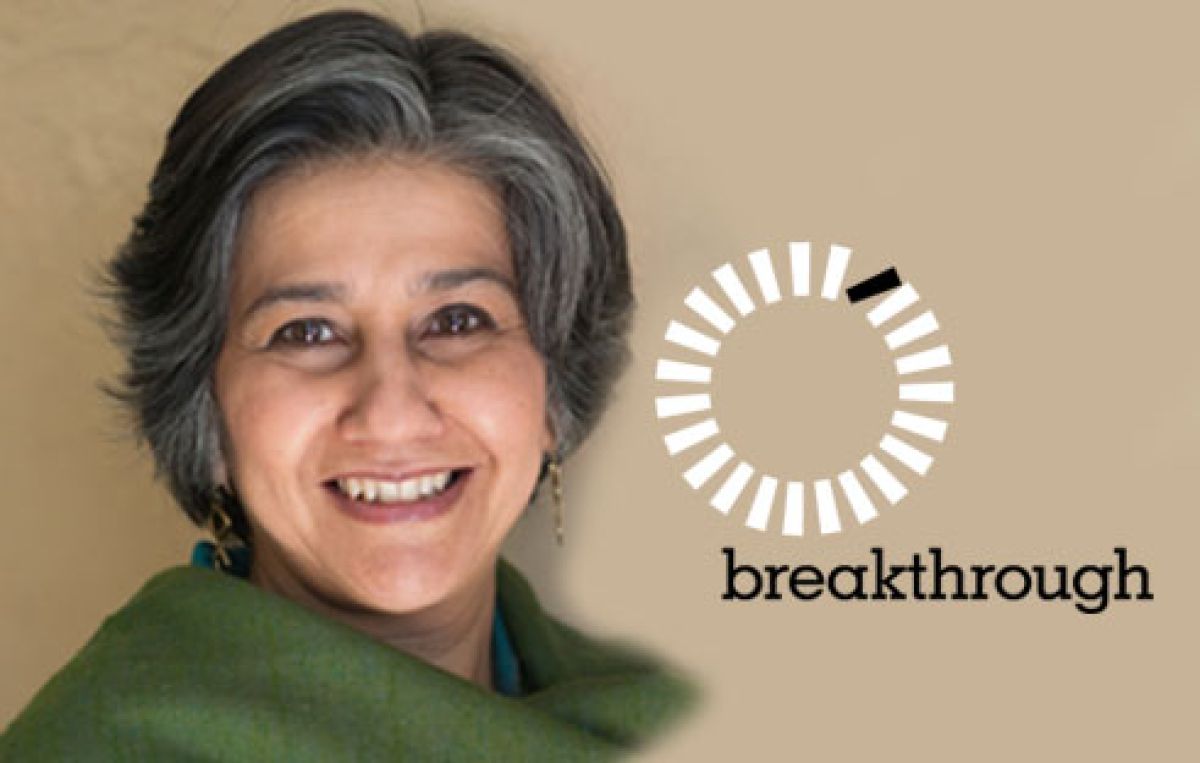UTS Neighbors: Breakthrough

NEW YORK – This is the second part in our series on non-profit organizations which occupy space in the same building as UTS at 4W43 Street. This week the focus is on a group at the center of a topic that appears in the news on a regular basis: gender-based violence.
Whether the story gains national headlines involving professional athletes, college campuses, or simply stories reported in local radio, television or newspaper accounts, violence against women is not only a current “hot” topic, but certainly one that will not soon, fade from our conscience.
The group, Breakthrough, is not just focused on the here-and-now, however, and not simply on the actions of violence or harmful behavior directed toward women, but on the long-term goal of changing the culture to combat gender-based violence prevalent in countries and cultures throughout the world.
“Breakthrough is a global human rights organization,” explained Rachel Goldfarb, Communications Manager. “We are focused on changing the culture of gender-based violence.”
Started in India 15 years ago by Mallika Dutt, the group’s President and CEO who will soon be stepping down, the emphasis was on the prevention of (too) early marriage for girls and the ingrained cultural belief that boys are more valuable than girls.
The work here in the U.S. is of a different, but equally important, nature: the prevention of sexual violence on campus. Once again, however, the emphasis is not simply on preventing sexual crimes being committed against women, but on the broader goal of changing the culture on campuses so that women no longer experience loss of dignity or fear for their safety. “
The CDC has recently brought us on as consultants to help them understand gender-based violence as an issue on campus because it is seen as a public health issue in many ways. We’ve been giving seminars to the CDC and state organizations that work with the CDC on our culture change model and how they can use it.”Rachel Goldfarb, Breakthrough Communications Director
Our founder was born in India and founded the organization trans-nationally in part because it gives us opportunities to learn from each other’s cultural contexts,” said Goldfarb, “so we work in the same kind of overarching thinking but our U.S. and India programming do different things.”
Enlisting the help of men and women on campuses across the U.S., Breakthrough works to explore the root causes of gender-based violence within the culture and to find ways to change or expose behavior often merely dismissed as a “boys being boys” mentality. “
“We’ve got students working, helping to figure out what are the cultural norms that drive this and how we can fix it, how we can change it for the better,” said Goldfarb. “The students we are working with are just mind-blowingly incredible and super-dedicated to this work.” Working with just 10 full-time employees from their Manhattan office, Breakthrough has been able to have an outreach that stretches across the U.S. and all the way to the west coast, with large, active programs at Indiana University and UCLA (University of California, Los Angeles).
Although they receive no state or federal funds, the Centers for Disease Control (CDC) has recently begun working with Breakthrough because of their highly effective work on campuses nationwide. “
The CDC has recently brought us on as consultants,” said Goldfarb, “to help them understand gender-based violence as an issue on campus because it is seen as a public health issue in many ways. We’ve been giving seminars to the CDC and state organizations that work with the CDC on our culture change model and how they can use it.”
The next big step for Breakthrough is a campus mobilization in the tri-state area with the goal of getting participation on 25 different colleges. “
We’re focused on students who are involved with media,” said Goldfarb, “journalism, digital media, video, all of that sort of stuff, and we’re going to bring all these students together and work with them to plan an action that all of them can bring back to their campuses and do simultaneously.”
Apart from their work on campuses, Breakthrough is also working with other groups, such as those who provide services for survivors of sexual violence, and those who want to change the laws that apply to crimes of gender-based violence.
Goldfarb then returned to the theme that is really at the heart of what Breakthrough stands for and what they are ultimately working toward. “I don’t think there are enough people working on the culture that drives it,” she said, “and I don’t think we can end it without changing the culture.”
‘“I felt like I was in an echo chamber,” Dutt says. “There was a real gap between the policy rhetoric and the accomplishments we had made.”
Dutt also came to believe that advocates were placing too much emphasis on changing laws and achieving public policy gains. “This was simply not enough,” she says. “We could have amazing laws on the books and have nothing change in the lives of people,” she says. “It wasn’t just an implementation or a resource issue. It was a culture and attitude issue.”’
For more information on Breakthrough and its programs:
Call:1-212-868-5000 or Visit: www.breakthrough.tv | Breakthrough Facebook page





